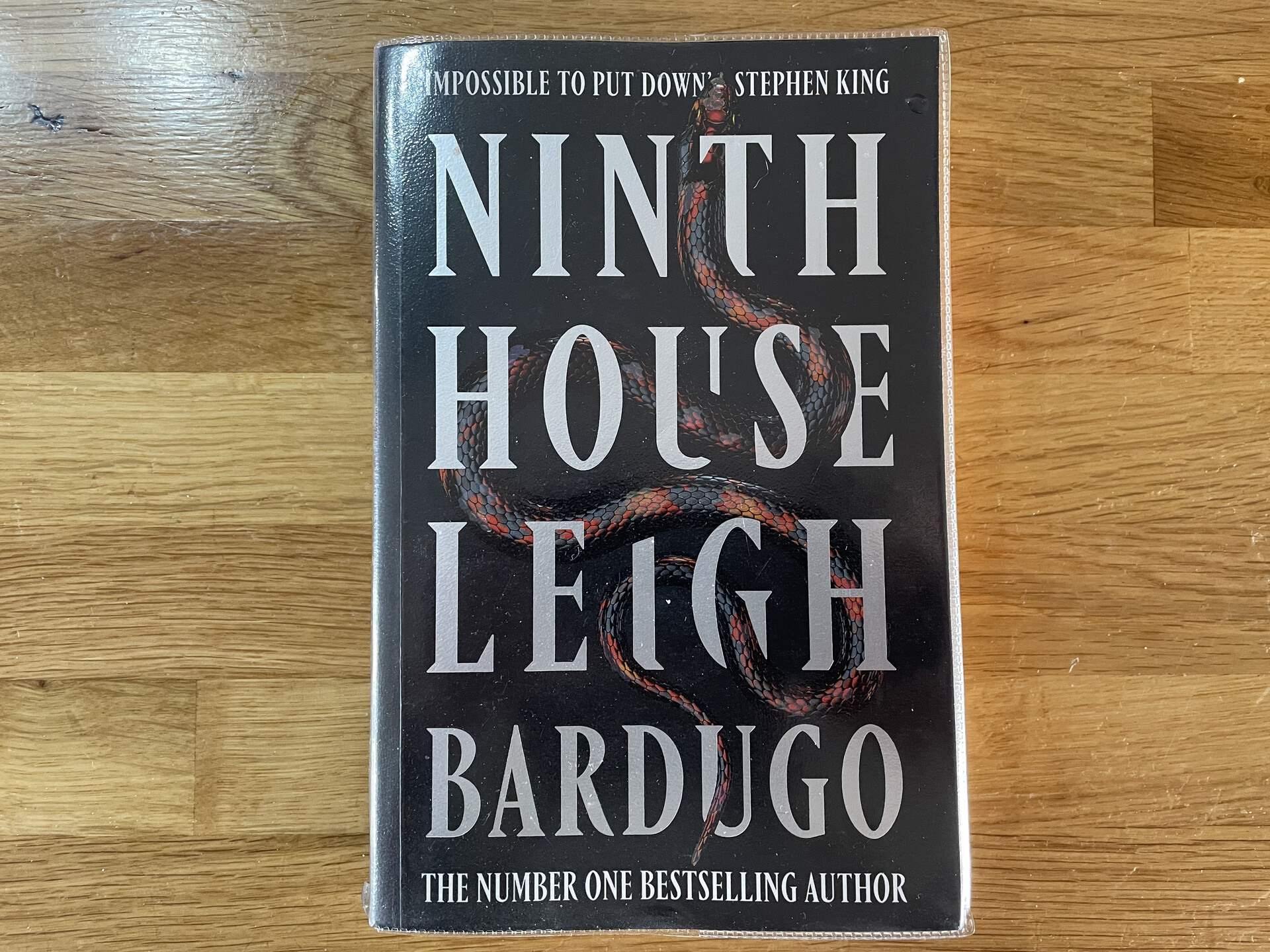Ninth House
by Leigh Bardugo
Published 2019 459 pages
A fun twist on the magic-at-a-school genre: Alex Stern, a young girl who can see ghosts, is plucked from poverty and placed at Yale University to oversee the secret societies, whose power derives from secret magic stemming from nexuses below their clubhouses. A murder near the school triggers an investigation that takes Alex through the seamy underworld of Ivy League privilege.
First off, the good stuff! I like the flavour of magic in this world: it's like wholly corrupt, dangerous, barely harnessed by the kids wielding it. I don’t think that this quite aligns with the book’s perspective—namely, that magic is non-moral, but is available to anyone with the capital to spend on it—but I think that when it comes down to it, it’s the same thing. I don’t think that, in a world where such magic exists, that it would be left in the hands of the youths (who seem to use it mostly for partying, but also for a little bit of geopolitical manipulation, as a treat), but I’m not reading too much into it.
The magic itself, however, feels more like plot contrivance than internally-consistent system. Too often, Alex runs up against what seems at first to be an unsolveable problem—extracting information from an adversary, accessing somewhere off-limits—but then pulls a magic trick out of her bag to solve the problem without payoff. Usually this is a form of magic that compels people to do what you ask them to—the existence of which magic begs more questions than it answers. I did like that later in the book, the same magic is used againstAlex in a fun little twist of fate.
I’m not sure that I buy the oversight organisation that Alex works for, either: the House of Lethe is tasked with preventing the secret societies from going out of control with their magic, but they don’t seem to have any actual administrative authority—and in fact, as we’re reminded throughout the novel, they’re at the mercy of the societies for funding. So who’s really overseeing who, here?
Ninth House also suffers from a couple other young adult fiction pitfalls. There’s too much focus on detail that doesn’t colour the action—a tense scene is often interrupted by a description of what someone’s wearing or eating. It feels like personal style is often substituted in for character development—particularly in the case of Alex’s mentor, Darlington. Characters also have a tendency to quip cleverly like Marvel superheroes; I find this really distracting but there must be people who like it because Marvel’s screenwriters continue to cram it in, and Marvel’s finance department’s eyes continue to bulge with big gold dollar signs.
Finally, while one of the central themes of the book is how people cope with trauma, the book seems to go out of its way to put its characters in truly awful situations, without any payoff or consequences. The book deserves its content warnings—there are a number of really traumatic scenes—but these scenes don’t seem to serve any purpose other than shocking the reader, which helps to rob them of their effect by the end of the book.
Previous